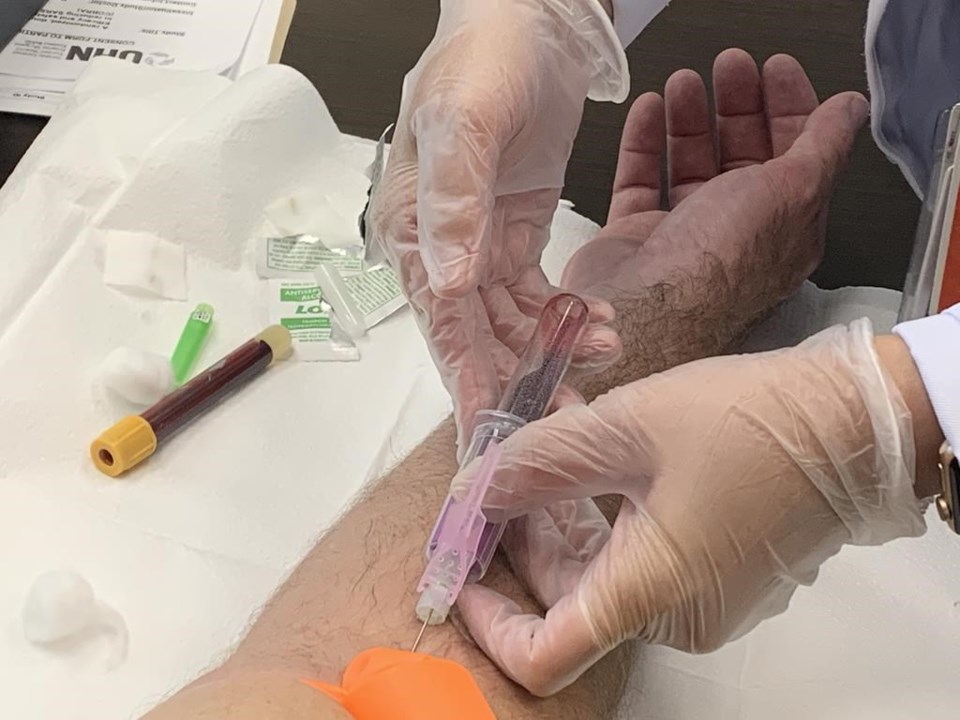TORONTO — Canadian researchers have launched a study to determine if a century-old vaccine against tuberculosis can offer some protection against COVID-19.
Investigators at the University Health Network in Toronto say they hope to test a theory that Bacille Calmette Guerin, or BCG, can reduce the incidence and severity of COVID-19 infection.
The trial is open to police, fire and health-care workers in the Greater Toronto Area who are at greater risk of COVID-19 exposure, with researchers hoping to recruit more than 3,600 participants.
Principal co-investigator Dr. Alexandre Zlotta says that if the inexpensive vaccine proves helpful, it can be rapidly deployed to offer temporary protection until a COVID-specific vaccine is widely available.
Even before COVID-19 arrived, Zlotta says BCG was believed to offer protection from other viral infections, pointing to research going back a decade.
He touted a study published in Cell last month among elderly participants in Greece that found those vaccinated with BCG suffered fewer serious respiratory viral infections.
"There is a possibility that it would help fight COVID, and other pandemics. Is it (guaranteed)? Absolutely not," says Zlotta.
"Until we have the study done, no one should be advised to get a BCG vaccination to fight COVID. The issue is not settled."
While BCG continues to be used in European and developing countries, Canada discontinued routine use in the early 1970s, according to Toronto Public Health.
Tuberculosis cases in Canada are among the lowest in the world, although certain vulnerable populations are at higher risk for the infectious, bacterial disease.
Dubbed "COBRA," the double-blind placebo-controlled study is unfolding alongside similar trials in Germany and the United States. Experts expect to release results in May 2021.
Interest in BCG emerged early in the pandemic when researchers noticed some countries with higher rates of BCG coverage also had significantly lower rates of COVID-19 deaths. But more recent analysis reflecting the pandemic's movement across the globe bucks that idea.
"Lack of evidence for BCG vaccine protection from severe COVID-19," states the headline of a letter published in the Proceedings of the National Academy of Sciences on Sept. 29.
Citing updated analysis based on data from the Johns Hopkins University Coronavirus Resource Center, the study notes Bolivia, Panama, Columbia, Peru, Brazil, Mexico and South Africa had the largest increases in COVID-19 deaths on Aug. 1, even though the countries also have high BCG coverage.
The letter concludes by saying ongoing randomized controlled trials should provide more concrete answers.
Zlotta acknowledges ongoing questions about what, exactly, BCG can do to protect against this novel coronavirus, and says his study — along with similar trials around the world — should help settle debate once and for all.
"I think we're going to have enough (evidence) in the different studies to settle the issue as to whether yes or no it does protect."
UHN says the Canadian study uses an improved version of the vaccine, which researchers expect "will help muster a stronger immune response."
The study is being funded by The Princess Margaret Cancer Foundation.
This report by The Canadian Press was first published Oct. 6, 2020.
Cassandra Szklarski, The Canadian Press
